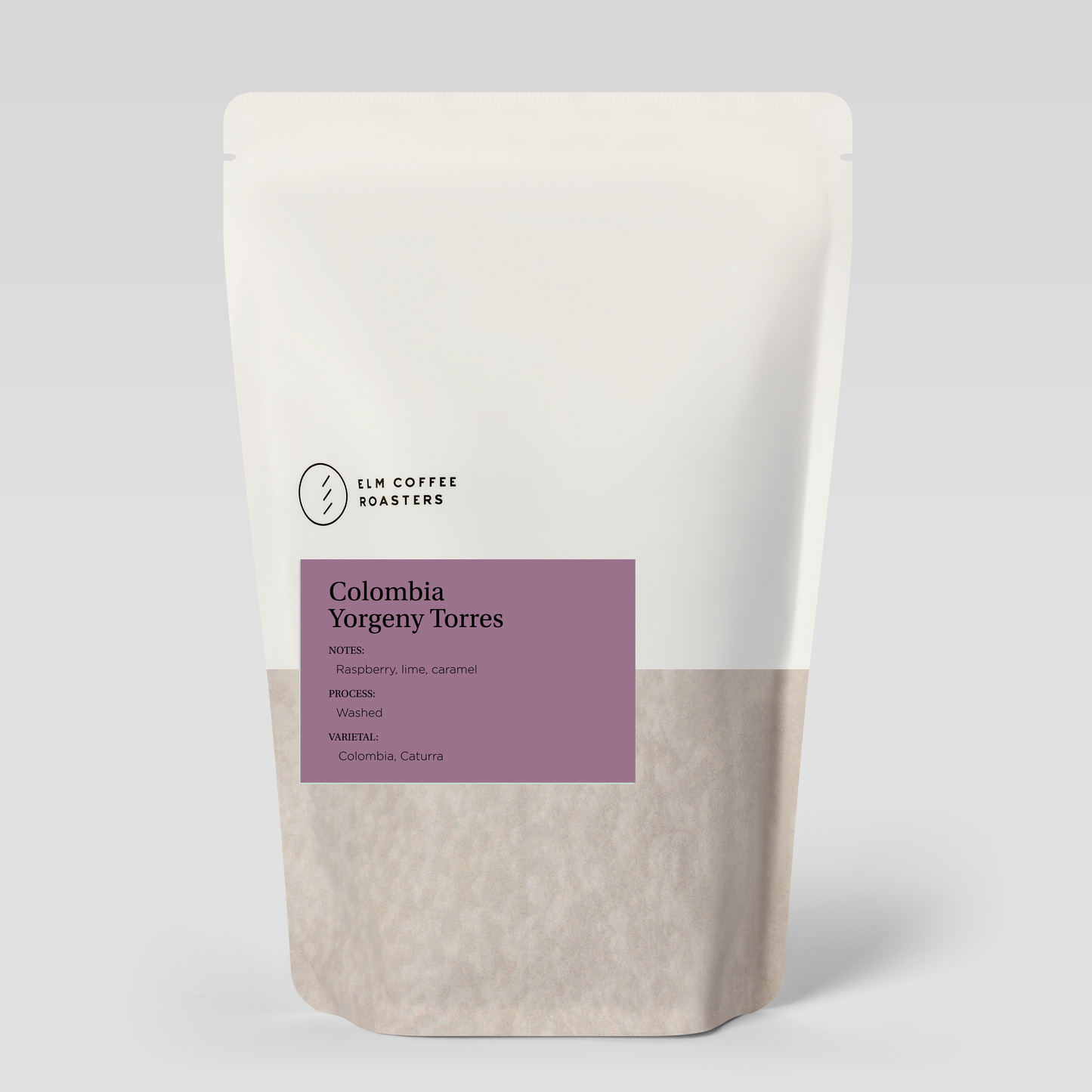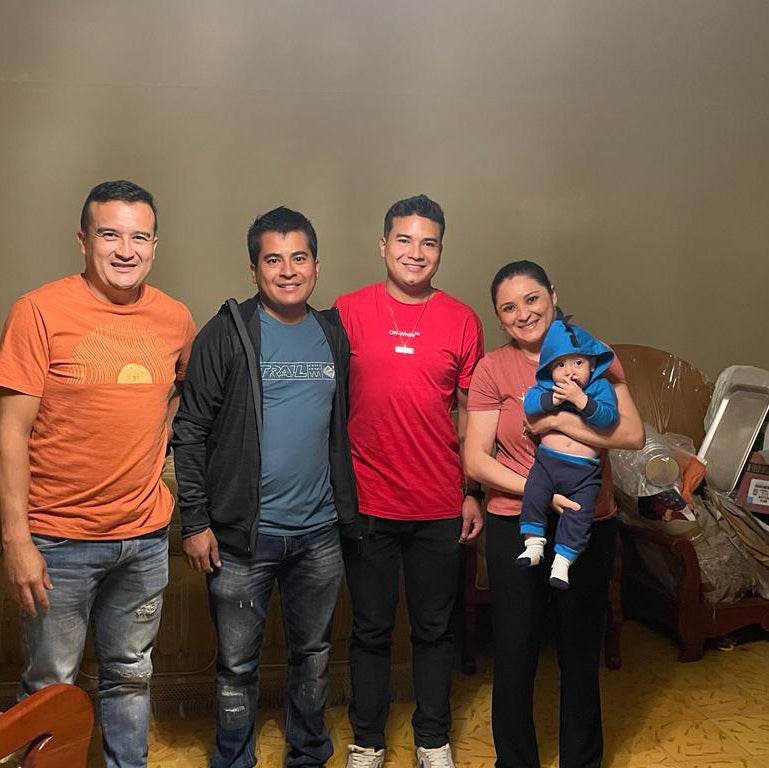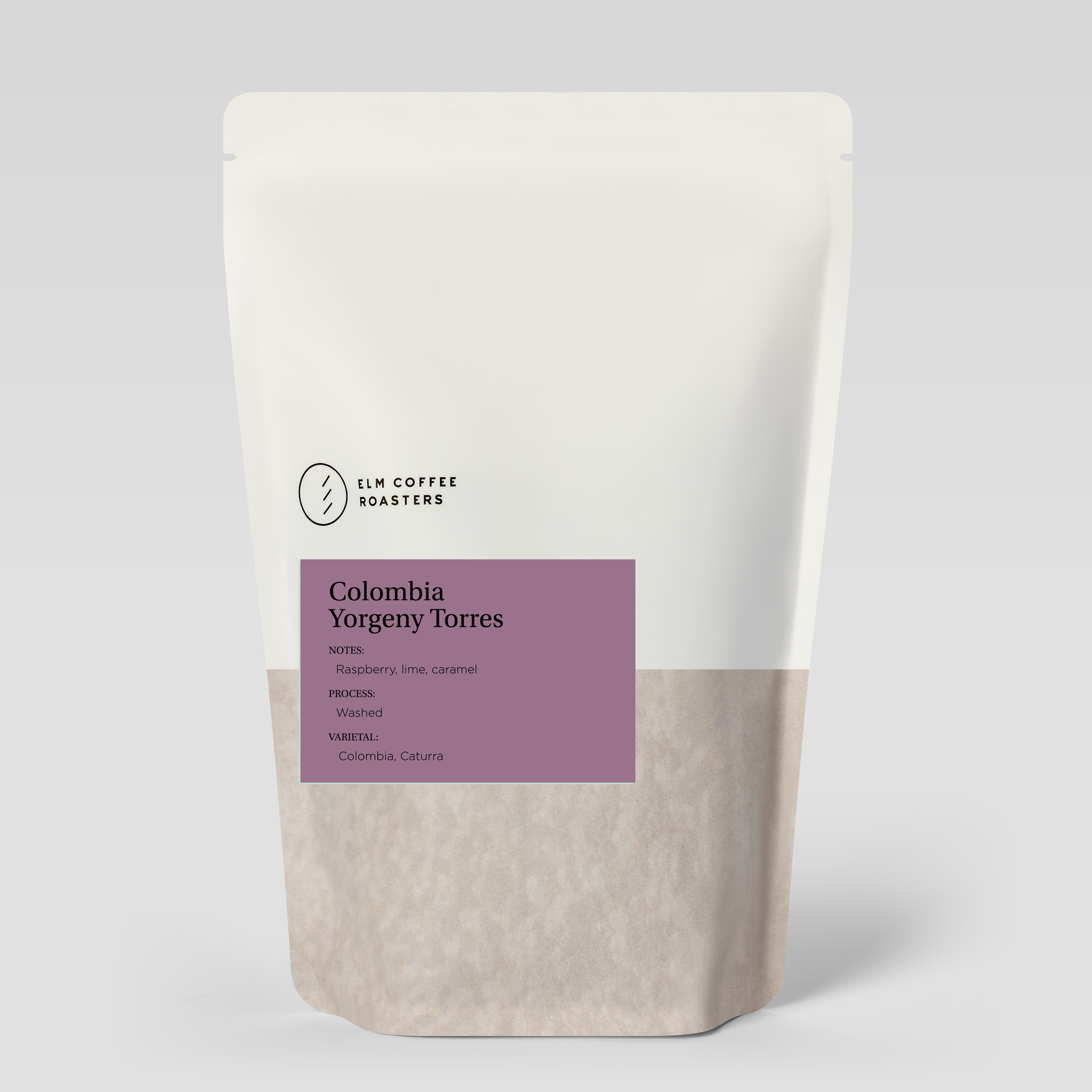Colombia Yorgeny Torres
Colombia Yorgeny Torres
Raspberry
Lime
Caramel
Yorgeny Torres’s coffee returns once again! If 9 Swans is Elm’s flagship, Yorgeny Torres is our deep cut: a long time favorite for both regular Elm drinkers and us, we’ve carried it every year. Yorgeny’s coffee is always a stalwart example of what we love to serve at Elm: approachable and exceptional coffee, attentively cared for by small producers interested in both quality and ecology. In the cup, the usual raspberry and tropical fruit flavors remain, with delightful lime acidity and caramel sweetness to round it out.

About This Coffee
Flavors: Raspberry, lime, caramel
Sourced from: Nariño, Colombia
Elevation grown: 1800 Meters
Producers: Yorgeny Torres
Varietals: Colombia
Harvested: 2023
Process: Anaerobic Washed


